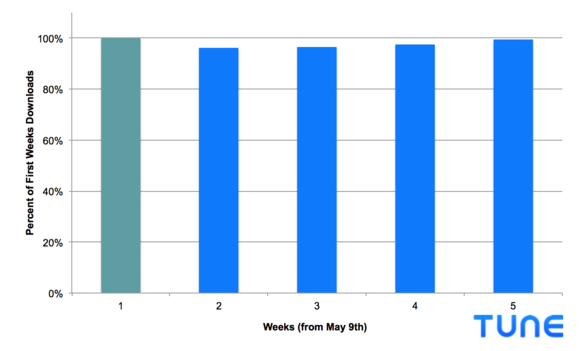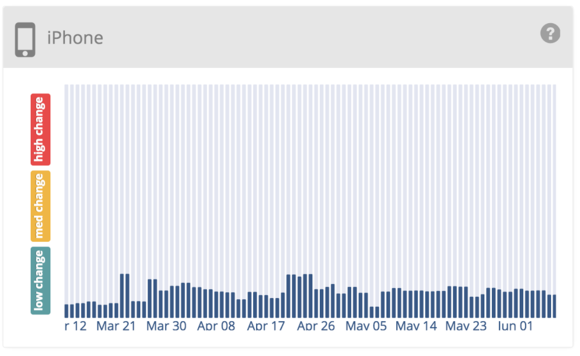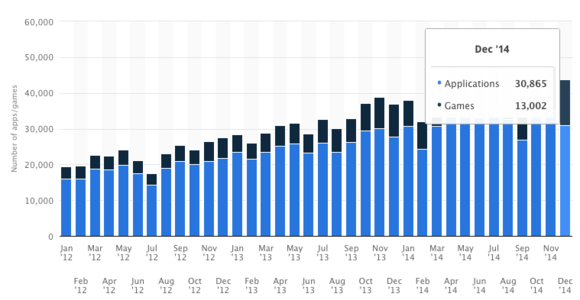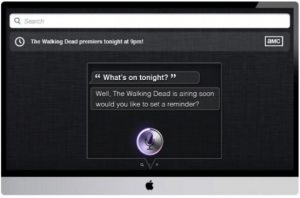If you’ve been paying attention to different forums and online communities lately, you might have noticed that there’s been a lot of chatter where app marketers have noted that they’ve seen their organic downloads drop.
Accompanying this chatter, there also seems to be a lot of confusion around what the catalyst was that caused this organic decrease. Somewhere along the way, an idea got planted in someone’s head that it was an algorithm change, and that idea spread like a virus. This has caused numerous discussions and a lot of anxious questions in the marketing community.
We’re here to clear the air and tell you what really happened, what didn’t happen, if you need to worry about it, and how you can take advantage of the change.
What happened?
So what happened? Why do people think Apple changed their algorithm?
In early May, Apple did make a small change to the App Store… but not to the algorithm. What they changed was the Games category page.
Before
Previously, there used to be sections titled ‘New’, ‘What’s Hot?,’ and ‘All iPhone (Free and Paid).’ The apps that showed up on this page used to be chosen by an algorithm largely based on download velocity (number of downloads in the last 24-48 hours). These pages received millions of eyeballs daily, and as a result, the apps that were featured here received a large boost in organic installs.
After
Apple has tweaked this page slightly, and changed the sections on the games category page to ‘Best New Games,’ ‘All Time Greats,’ and ‘Other Games You Might Like.’ They’ve changed these to be curated lists, which means the editorial staff at Apple now hand picks the games that will be featured in these new sections (with the exception of Other Games You Might Like, which is based off of the games you’ve already downloaded). The apps shown on this page still get a boost in organic downloads, but they can no longer buy their way to these spots with incentivized downloads.
What didn’t happen…
Many marketers have made the understandable mistake that this was an app store search algorithm change.
It wasn’t.
There have also been some outlandish claims such as ‘Apple has killed user acquisition.’
They haven’t.
In fact, it turns out that for the most part, apps’ organic installs haven’t been impacted. We decided to take a look at all the organic installs from TUNE customers to see if there’s been a change week-over-week in the number of daily average installs. Below you can see a chart showing that over the last five weeks, the daily organic installs have stayed fairly consistent relative to the first week. For example, the second week’s daily organic installs were 96% of the first week, and the third week’s was 97% of the first week’s installs. This shows there was not a lot of change week to week. Apple removed an algorithm from a specific part of the app store (however, this algorithm is still very much alive in other category pages). It’s important to note that the actual search ranking algorithm did not change. You can see here that the MobileDevHQ Sonar feature (which shows changes to algorithms in the Google Play Store or App Store) shows that the Apple App Store algorithm has remained steady for the past month. No changes in sight.
Apple removed an algorithm from a specific part of the app store (however, this algorithm is still very much alive in other category pages). It’s important to note that the actual search ranking algorithm did not change. You can see here that the MobileDevHQ Sonar feature (which shows changes to algorithms in the Google Play Store or App Store) shows that the Apple App Store algorithm has remained steady for the past month. No changes in sight. Essentially, Apple has made it impossible for games to reach the main featured pages of their App Store using burst campaigns. This isn’t the end of the world. It just means buying incentivized traffic in order to get your app onto these pages becomes much harder.
Essentially, Apple has made it impossible for games to reach the main featured pages of their App Store using burst campaigns. This isn’t the end of the world. It just means buying incentivized traffic in order to get your app onto these pages becomes much harder.
Should you worry?
No. The majority of app marketers don’t need to worry.
If you’re a reskinner who takes a popular game, changes the look, and then tries to buy your way onto these featured pages to get quality organic downloads, you might have to worry. Apple has been very clear about their feelings towards trying to ‘game’ the App Store like this (remember the algorithm change in 2011?).
Now I’m sure some of you are thinking ‘I work hard on my marketing to get a lot of downloads in a legitimate fashion, and now I won’t see as much return on my effort for that. Why punish everyone for the crimes of a few?’
My answer is: you shouldn’t worry, you’ll still have the opportunity to get featured if you’re a legitimate app. In December of 2014, there were 30,865 new apps and 13,002 new games added to the App Store. Source: Statista
Source: Statista
I’m fairly certain given the small size of their editorial team, Apple will use downloads as a filter/prerequisite for the apps they will consider featuring. It just means you won’t be seeing as many Flappy Birds clones piggy backing on real apps’ successes.
How to take advantage of the change?
The change has happened, there’s no going back now. So what can you do as a marketer to take advantage of it?
Another way you could ask that question (which many people have) is ‘how do I get featured in the App Store?’
Unfortunately there’s no guaranteed formula, but there are a few things you can do to help your chances:
Make an app that looks awesome:
Apple loves design, so one thing you can do to make your app stick out it make it visually appealing. To do that, you can think about the one thing Apple loves more than design: Apple (can you blame them? They’re the most valuable company in the universe).
If you really want some good points, try to make your app mimick the latest design trends they are utilizing (e.g. flat design with the release of iOS 7).
Use their tech:
Like I said, Apple loves Apple.
When they release a new technology, or give developers access to a new feature, take the hint (*cough* Touch ID *cough* Siri *cough* the new Spotlight Search API *cough*). They want these things to be used, and if you do it well, they’ll reward you.
Get someone’s attention:
Lastly, you can try to get some Apple employee’s attention. This could be through having a prominent blogger cover your app, or it could be by attending WWDC and flexing your networking muscles. Either way, if someone who is combing through thousands of apps a day has heard of your app before, it can’t hurt.
But will it make a difference?
You can go through all that work to try and get featured, but if you do, you’ll want to know it makes a difference. I mean, how impactful can getting your app shown on one page really be?
As it turns out, pretty impactful. When Apple featured the Transit app in the Navigation category page with the launch of iOS 6, it received 18,000 downloads that day. Those downloads then helped it to become featured on more prominent pages, and has played a part in amassing over 100,000 weekly active users.
What’s next?
I would be surprised (but not shocked) if Apple rolled this out to all categories. I’m not sure it makes a lot of sense considering it would be difficult to scale, and would require them to significantly grow their editorial team. Also, the problem of burst campaigns and reskinning also isn’t as prominent in other categories, which means it’s not as necessary.
Then again, Apple has been known to throw curve balls, so we could see an announcement tomorrow where every category page is now curated… and hey, why not a new Apple TV as well?
Like this article? Sign up for our blog digest emails.
Author
Becky is the Senior Content Marketing Manager at TUNE. Before TUNE, she handled content strategy and marketing communications at several tech startups in the Bay Area. Becky received her bachelor's degree in English from Wake Forest University. After a decade in San Francisco and Seattle, she has returned home to Charleston, SC, where you can find her strolling through Hampton Park with her pup and enjoying the simple things between adventures with friends and family.




Leave a Reply
You must be logged in to post a comment.